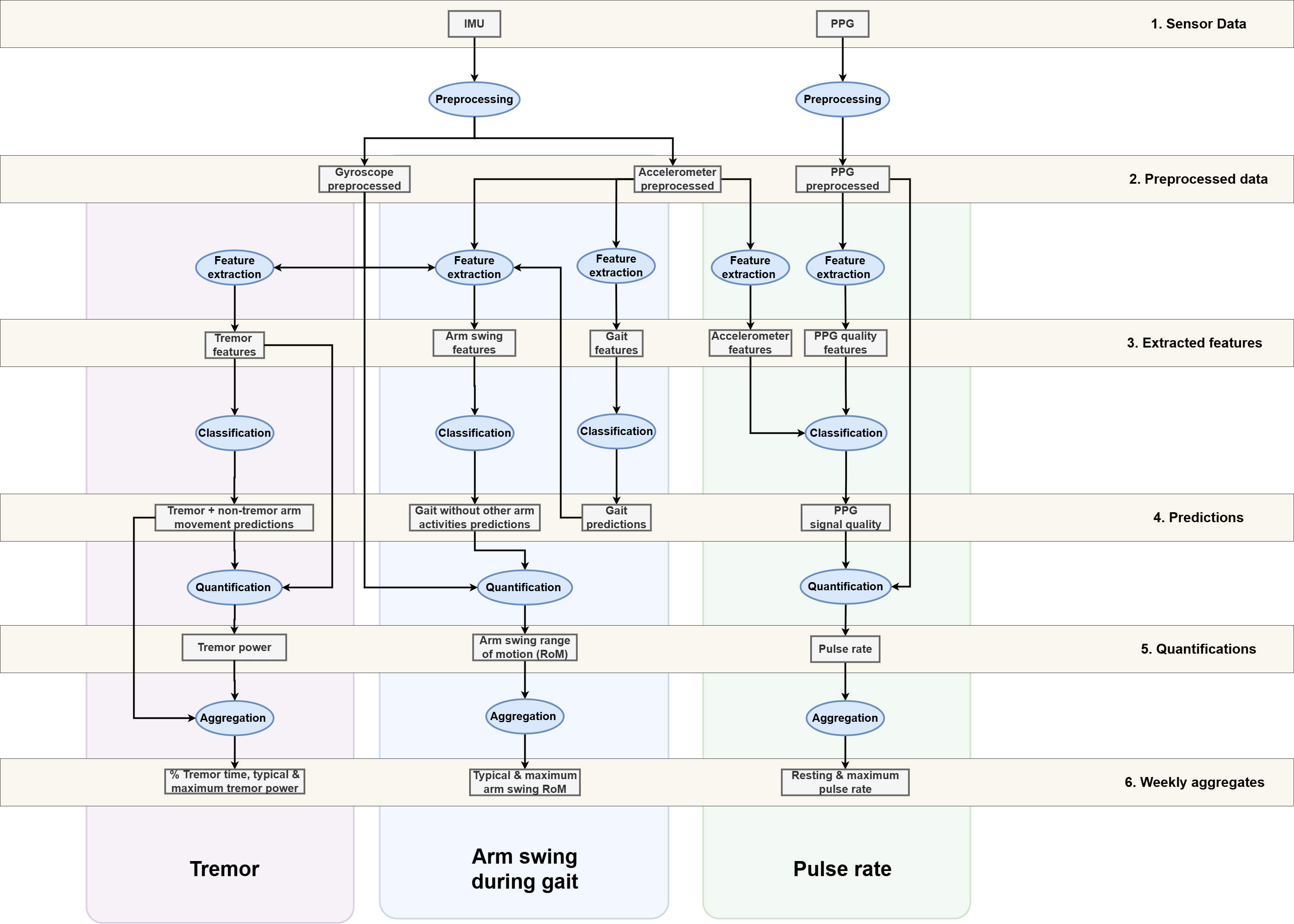| Badges | |
|---|---|
| Packages and Releases |    |
| DOI | |
| Build Status |  |
| License |  |
ParaDigMa is a Python package for processing time series data of wrist-worn sensors to quantify signs of Parkinson’s disease (PD). It contains functionalities for processing the following sensor types:
- Inertial Measurement Units (accelerometer, gyroscope)
- Photoplethysmogram (PPG)
And analyses of the following motor and non-motor domains:
- Gait
- Tremor
- Heart Rate
The components of ParaDigMa are visually shown in the diagram below.
ParaDigMa can best be understood by categorizing the sequential processes:
| Process | Description |
|---|---|
| Preprocessing | Ensuring that the sensor data is ready for further processing |
| Feature extraction | Creating features based on windowed views of the timestamps |
| Classification | Making predictions using developed and validated classifiers |
| Quantification | Selecting specific features of interest |
| Aggregation | Aggregating the features at a specified time-level |
ParaDigMa can be used to extract aggregations related to a single or multiple domain(s). Each domain has its specific data requirements. Strict requirements for the domain are marked by X, soft requirements (for some additional functionalities) are marked by O.
| Gait | Tremor | Heart Rate | |
|---|---|---|---|
| Accelerometer | X | O | |
| Gyroscope | X | X | |
| PPG | X |
The package is available in PyPi and requires Python 3.10 or higher. It can be installed using:
pip install paradigmaSee our extended documentation.
The package requires Python 3.11 or higher. Use Poetry to set up the environment and install the dependencies:
poetry installpoetry run pytestpoetry run pytype .poetry run make html --directory docs/Interested in contributing? Check out the contributing guidelines. Please note that this project is released with a Code of Conduct. By contributing to this project, you agree to abide by its terms.
ParaDigMa was created by Peter Kok, Vedran Kasalica, Erik Post, Kars Veldkamp, Nienke Timmermans, Diogo Coutinho Soriano, Luc Evers. It is licensed under the terms of the Apache License 2.0 license.
ParaDigMa was created with cookiecutter and the py-pkgs-cookiecutter template.
For more information or questions about ParaDigMa, please reach out to erik.post@radboudumc.nl.

